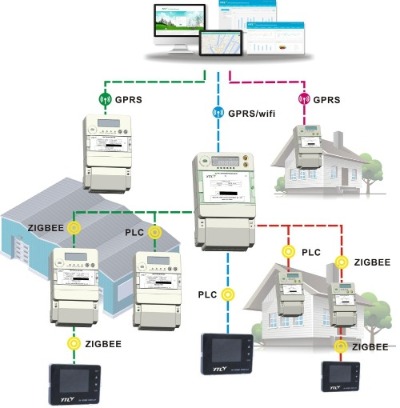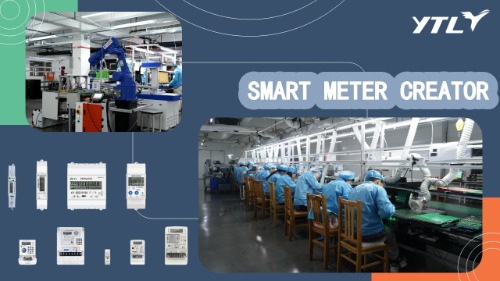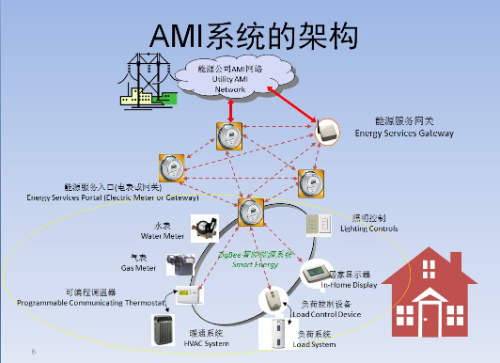The basis of AMI advanced measurement system is AMI electricity meter, each link has the existence of AMI electricity meter.
AMI (Advanced Metering Infrastructure), which is an important part of the smart grid. AMI system is mainly composed of AMI electricity meter, communication network, metering data management system (MDMS), home area network(HAN), is a two-way communication system between AMI electricity meter and power operator, providing real-time energy consumption data for power companies, and providing correct decision-making basis through the analysis of energy consumption data.
AMI electricity meter, also known as smart meter, is the most core part of AMI's advanced measurement system; The AMI Electricity Meter provides the basic data of power consumption and grid quality of end users, undertakes the function of data interaction with the data management system, and realizes the management of users through the AMI Electricity Meter.
The specific functions of AMI electricity meter are as follows:

1. Two-way measurement can be carried out to support the access of new energy distributed generation
2. Designed with various sensing devices, detect abnormal events, actively record and alarm
3. Carry out power quality monitoring, can measure voltage, current, active/reactive power, power factors, active/reactive power, harmonics, etc., and regularly upload data to the metering data management system according to the requirements of data analysis
4. With remote communication function, realize remote parameter setting, software upgrade, etc
5. Built-in magnetic holding relay to realize load control, power control, time control, remote control
6. Through the rate function, the electric energy consumption is measured in different periods, and the power company realizes peak shaving and valley filling through the design of the time electricity price. Built-in high-precision clock chip to support remote clock synchronization

The communication network is the soul of AMI electricity meter, but also the vein of AMI's advanced measurement system, with the communication network the whole system is active, is the basis for creative function derivation. Common communication system structures include hierarchical connection systems and direct connection networks.
Using a fixed two-way communication network, the AMI Electricity Meter information (including power data, fault alarm and device interference alarm) can be transmitted in real time to the metering data management system; It can also communicate system instructions to AMI Electricity Meters; It is the foundation for all advanced applications.

The metering data management system (MDMS) is a data processing center with analytical tools to process and store various types of data from AMI Electricity Meters. Through the statistics and analysis of the basic data provided by AMI electricity meters, it is output to power operators as the basis for making management decisions. Alarm information and power consumption data can be sent to end users.
The main equipment of the home area network (HAN) is the indoor display (IHD) supporting AMI electricity meter, which receives the power consumption data, alarm information and information issued by the power company of AMI electricity meter in real time. End users can timely and accurately grasp their own electricity consumption and the policy information of power companies, which can promote end users to save electricity.
The basis of AMI advanced measurement system is AMI Electricity Meter, each link has the existence of AMI electricity meter, which not only provides all kinds of power consumption data required for management, but also needs to be implemented by AMI electricity meter to implement the instructions for management. AMI electricity meter is the sensor of smart grid, and its wide application makes the power grid management intelligent, scientific and refined, which is conducive to improving the quality of power supply and better serving power users.AMI requires requisite bandwidth to supply more than merely metering and power quality information. AMI systems need to have appropriate bandwidth and broadcast capabilities to allow for Demand Response/Load Management as well as Distribution Automation.

 English
English 简体中文
简体中文














